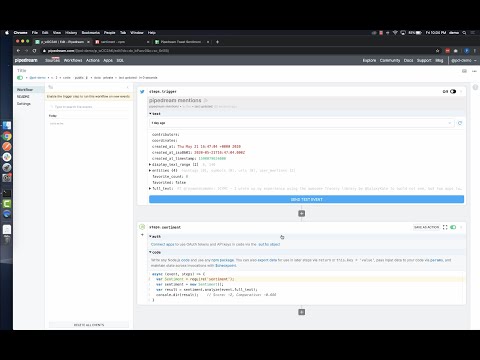What do you want to automate
with Google Sheets and Reflect?
Prompt, edit and deploy AI agents that connect to Google Sheets, Reflect and 3,000+ other apps in seconds.
Trusted by 1,000,000+ developers from startups to Fortune 500 companies
Popular Ways to Connect Google Sheets with Reflect#
Popular Google Sheets and Reflect Triggers#
Emit new event when a new link is created. See the documentation
Emit new event each time a comment is added to a spreadsheet.
Emit new event each time a row or rows are added to the bottom of a spreadsheet.
Emit new event each time a row or rows are added to the bottom of a spreadsheet.
Popular Google Sheets and Reflect Actions#
Add a single row of data to Google Sheets. Optionally insert the row at a specific index (e.g., row 2 to insert after headers, shifting existing data down). See the documentation
Add multiple rows of data to a Google Sheet. See the documentation
Get all values or values from a range of cells using A1 notation. See the documentation
Overview of Google Sheets#
The Google Sheets API allows for the creation, reading, updating, and deletion of data within Google Sheets, enabling a robust platform for spreadsheet management and data manipulation. Through Pipedream, you can craft serverless workflows that respond to various triggers, such as webhook events, emails, or scheduled times, to interact with Google Sheets. This synergy can automate reporting, synchronize data across applications, manage inventory, track leads in a CRM, or even conduct survey analysis by updating and retrieving sheet data on the fly.
Connect Google Sheets#
import { axios } from "@pipedream/platform"
export default defineComponent({
props: {
google_sheets: {
type: "app",
app: "google_sheets",
}
},
async run({steps, $}) {
return await axios($, {
url: `https://www.googleapis.com/oauth2/v1/userinfo`,
headers: {
Authorization: `Bearer ${this.google_sheets.$auth.oauth_access_token}`,
},
})
},
})
Overview of Reflect#
The Reflect API offers a platform for creating automated tests without writing code. It enables users to build workflows that can record and replay web interactions, check the functionality and performance of web applications, and trigger alerts or actions based on test results. With Pipedream, you can harness the Reflect API to integrate automated testing into complex workflows, combining it with various apps and services for a seamless DevOps experience.
Connect Reflect#
import { axios } from "@pipedream/platform"
export default defineComponent({
props: {
reflect: {
type: "app",
app: "reflect",
}
},
async run({steps, $}) {
return await axios($, {
url: `https://reflect.app/api/users/me`,
headers: {
Authorization: `Bearer ${this.reflect.$auth.oauth_access_token}`,
},
})
},
})
Related Videos#



Community Posts#


